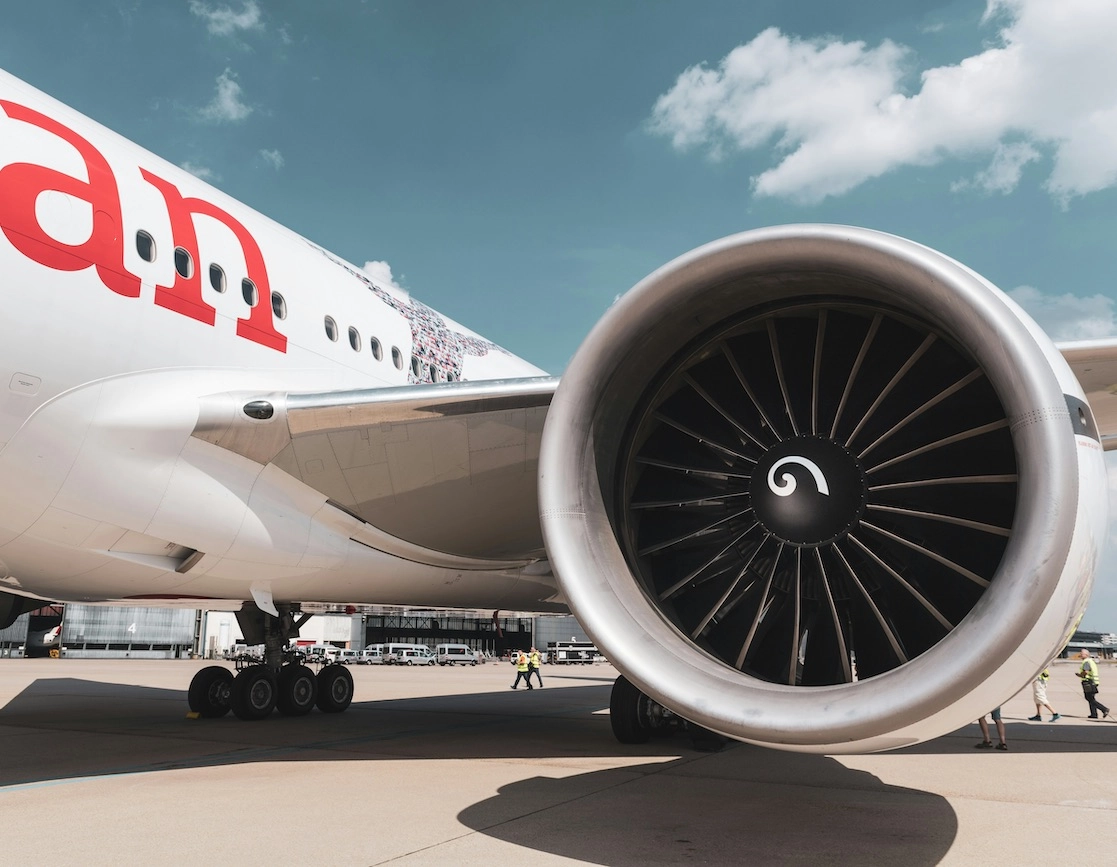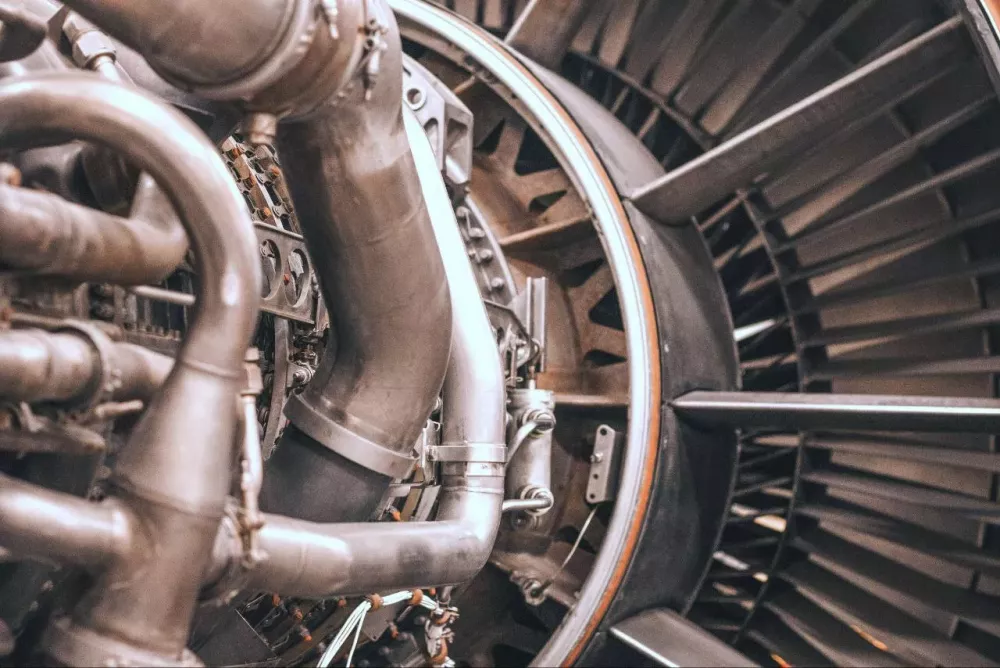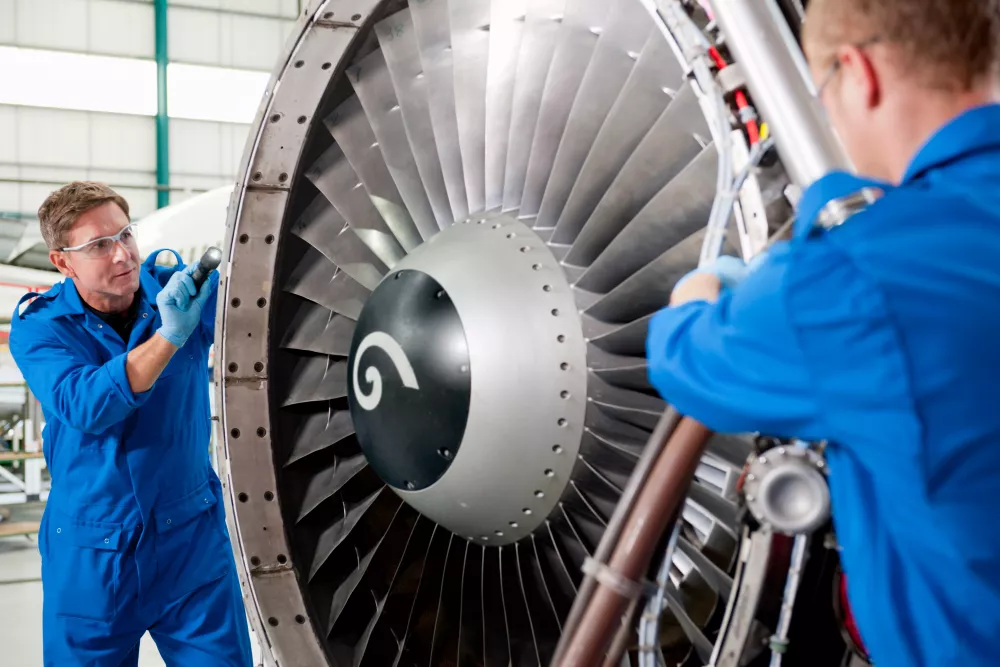The Importance of NDT equipment in the aviation sector
Addressing inspection challenges in aviation
In the aviation sector, maintaining the safety, reliability, and performance of aircraft is non-negotiable. The aviation industry faces rigorous demands due to the complex materials and components involved, the high-stress conditions experienced during flight, and the critical need to ensure the structural integrity of every part of an aircraft.
Regular inspections are essential to identify potential issues before they lead to failures or safety hazards.
Key inspection areas:
Aircraft structure: The integrity of an aircraft’s structure, including the fuselage, wings, and tail, must be thoroughly inspected for signs of stress, fatigue, and structural damage. Materials such as aluminum alloys and composites used in aircraft require careful examination to ensure they meet safety standards.
Engine components: Aircraft engines are subjected to extreme temperatures, pressures, and vibrations. Components such as turbine blades, compressor sections, and casings must be inspected for cracks, wear, and material fatigue to ensure optimal performance and safety.
Landing gear: The landing gear system, including struts, wheels, and brakes, endures significant forces during takeoff and landing. Regular inspection for cracks, corrosion, and wear is crucial to prevent failure during critical flight operations.
Composite materials: Modern aircraft utilize composite materials for their light weight and strength. These materials are prone to unique types of damage such as delaminations and impact damage, which require specialized inspection techniques.
Traditional inspection methods in aviation can be labor-intensive, potentially causing extended downtime and impacting flight schedules. Conventional techniques may not always provide the level of precision needed to detect subtle defects that could compromise aircraft safety.
TEQTO's solutions for aviation inspections
TEQTO offers an extensive range of non-destructive testing (NDT) equipment designed to meet the specific inspection needs of the aviation sector. Our advanced tools are engineered to provide precise and reliable results, ensuring the safety and performance of aircraft while minimizing operational disruptions.
Metal hardness testers: TEQTO’s metal hardness testers, including Combined Testing Methods, UCI Testing Method, and Leeb Testing Method, are essential for assessing the hardness of critical aircraft components. Accurate hardness measurements ensure that materials such as turbine blades and structural parts meet required standards for strength and durability.
Magnetic particle flaw detectors: These detectors are crucial for identifying surface and near-surface defects in ferromagnetic materials used in aircraft components. TEQTO’s magnetic particle flaw detectors help uncover cracks, porosities, and weld defects, contributing to the overall safety and integrity of aircraft structures.
Eddy-current flaw detectors: Using electromagnetic induction, TEQTO’s eddy-current flaw detectors are effective for detecting surface cracks and material inconsistencies in conductive aircraft components. This technology is particularly valuable for inspecting engine parts, structural elements, and other critical components.
Acoustic flaw detectors: Employing high-frequency sound waves, our acoustic flaw detectors provide detailed insights into internal defects within aircraft materials. This method is ideal for assessing the condition of composite materials, detecting delaminations, and ensuring the integrity of complex structures.
Coating thickness gauges: Proper coating thickness is vital for protecting aircraft components from corrosion and wear. TEQTO’s coating thickness gauges ensure that protective coatings meet industry standards, extending the lifespan and reliability of aircraft parts.
Ferrite meters: Our ferrite meters measure the ferrite content in stainless steel components and welds, providing essential data on corrosion resistance and mechanical properties. This information is crucial for maintaining the quality and durability of aircraft parts.
Crack depth meters: TEQTO’s crack depth meters accurately measure the depth and orientation of surface cracks in aircraft components. This precise measurement helps in assessing the severity of cracks and planning necessary repairs to maintain aircraft safety and performance.
By integrating TEQTO’s advanced NDT tools into aviation inspection processes, the industry can enhance the accuracy and efficiency of assessments. Our equipment addresses the specific challenges of aviation, ensuring the highest standards of safety and performance for aircraft while minimizing downtime and operational costs.


